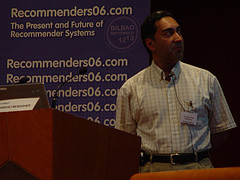The difficulty with poster sessions at ISMIR, is that many times, a poster includes a demo of some sort that includes music, and it is just too noisy in the poster area to hear any kind of music. Also, this year, the food tables were positioned a bit too close to the posters, making it tough to get to some posters (I noticed in the second poster session they had repositioned things to make a little more room).
There were nearly 20 posters shown on Monday. I wish I had time to write about all of the interesting ones, but let me highlight a few.
The folks from UPF were showing a demo of 'Good Vibrations', a tool for music tagging, exploration and discovery. This system allows users to tag songs with their own 'concepts' The system learns how these relate these concepts to the audio content.
This is a WinAmp plugin that collects music features and sends them back to a server where they are collected and will eventually be made available for researchers. You can sign up to be a beta tester for MirRocket at IntelligentSound.
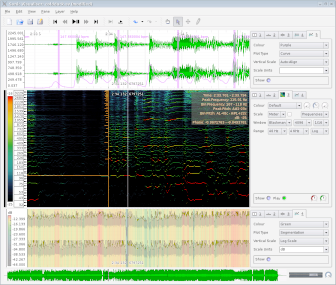
I was never able to get close enough to hear her pitch, there always seemed to be a group at the poster.

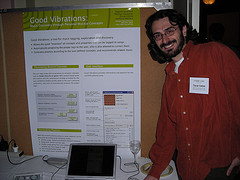
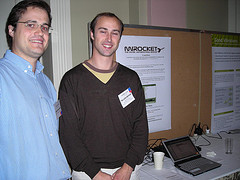

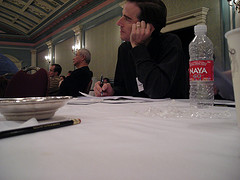






 Netflix
is offering a million dollars to anyone that can improve movie
recommendations by 10% over the current Netflix system. They are
also offering $50K per year to the most improved system until the 10%
overall improvement is attained. This really highlights the
increased importance that good recommendation has in this world
dominated by the Long Tail. Remember ... Keep repeating the
mantra:
Netflix
is offering a million dollars to anyone that can improve movie
recommendations by 10% over the current Netflix system. They are
also offering $50K per year to the most improved system until the 10%
overall improvement is attained. This really highlights the
increased importance that good recommendation has in this world
dominated by the Long Tail. Remember ... Keep repeating the
mantra: 
